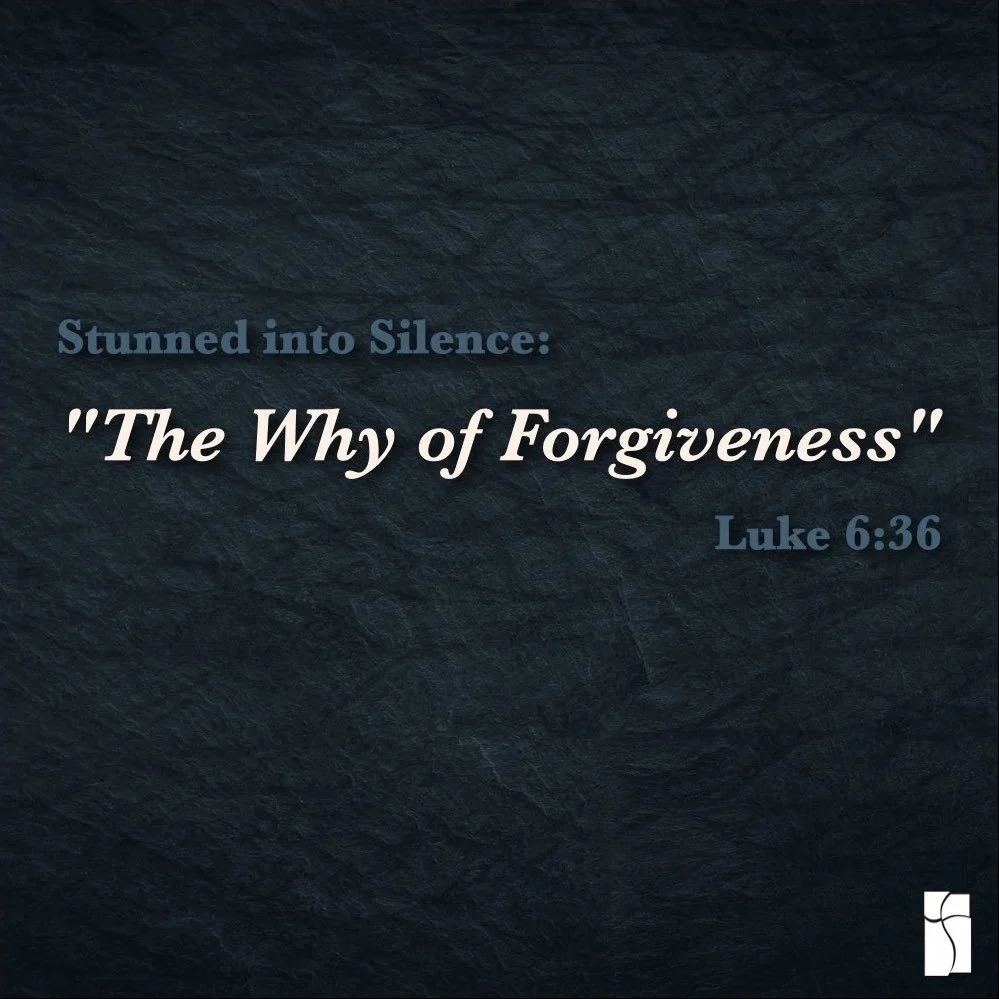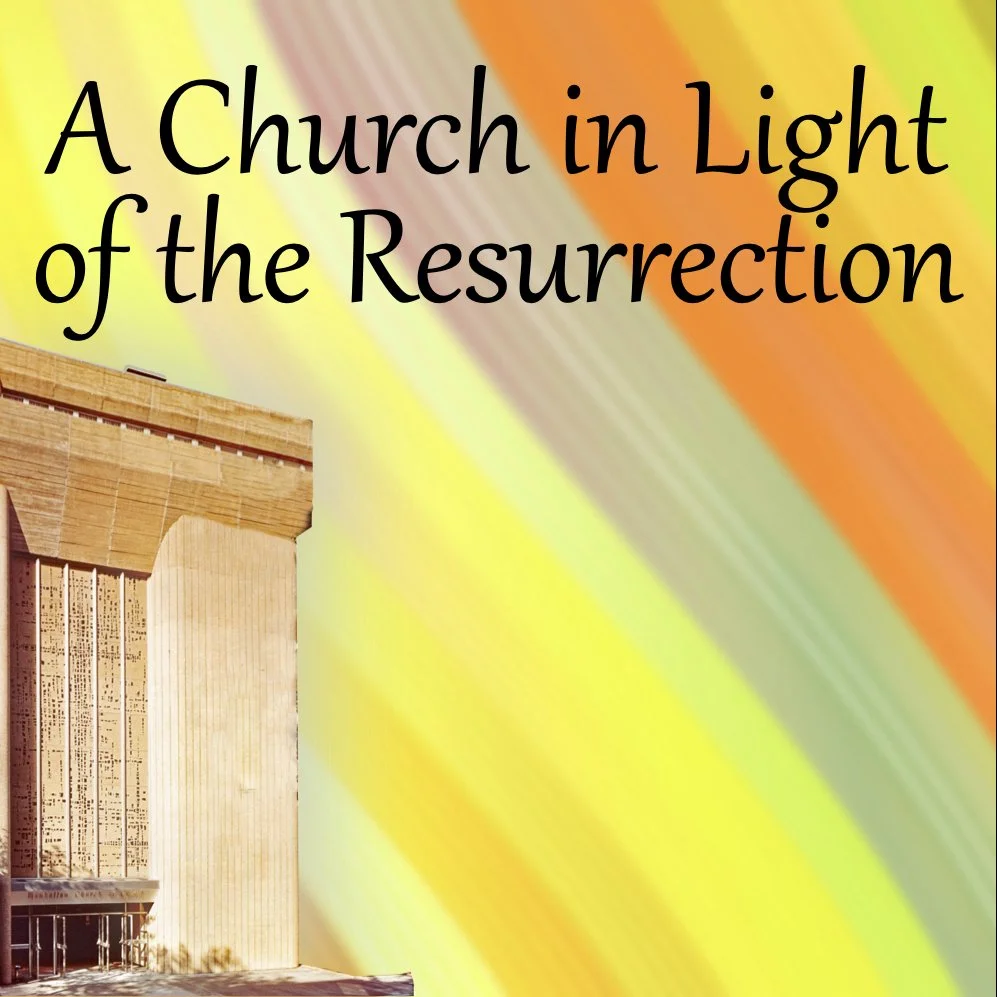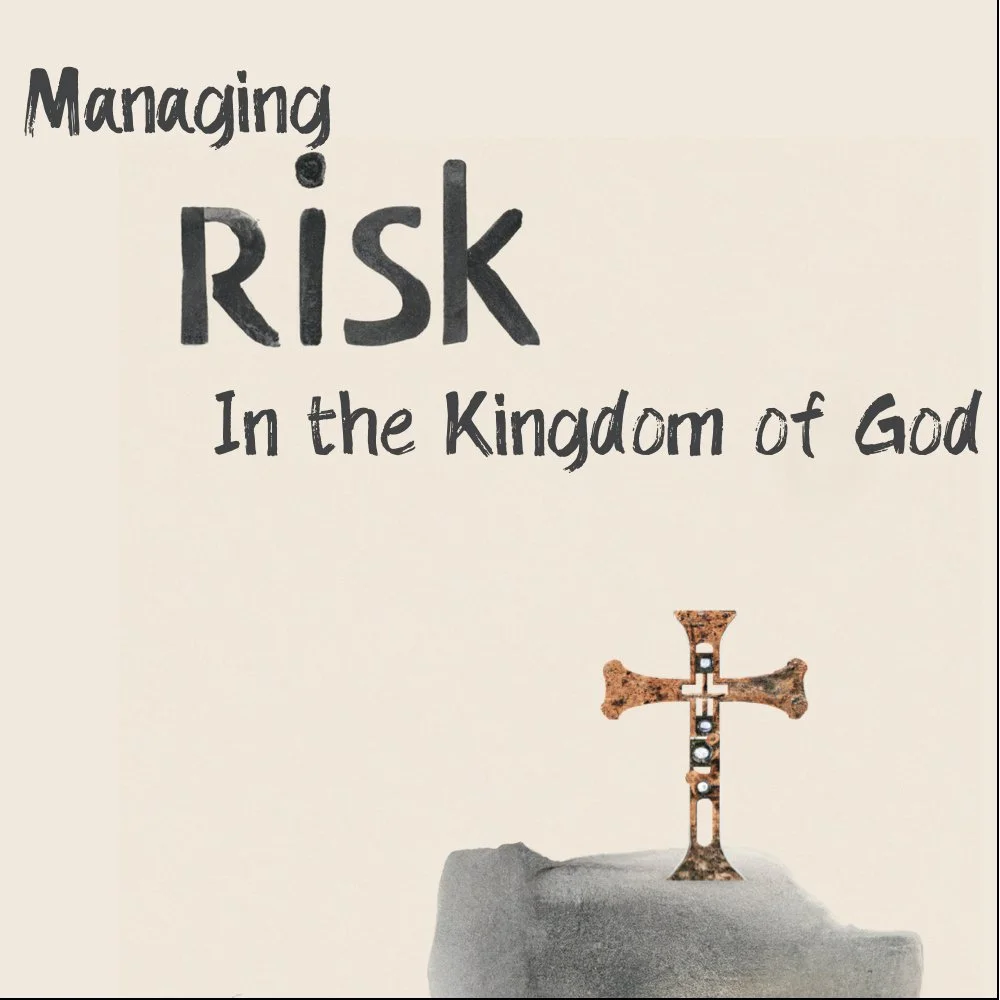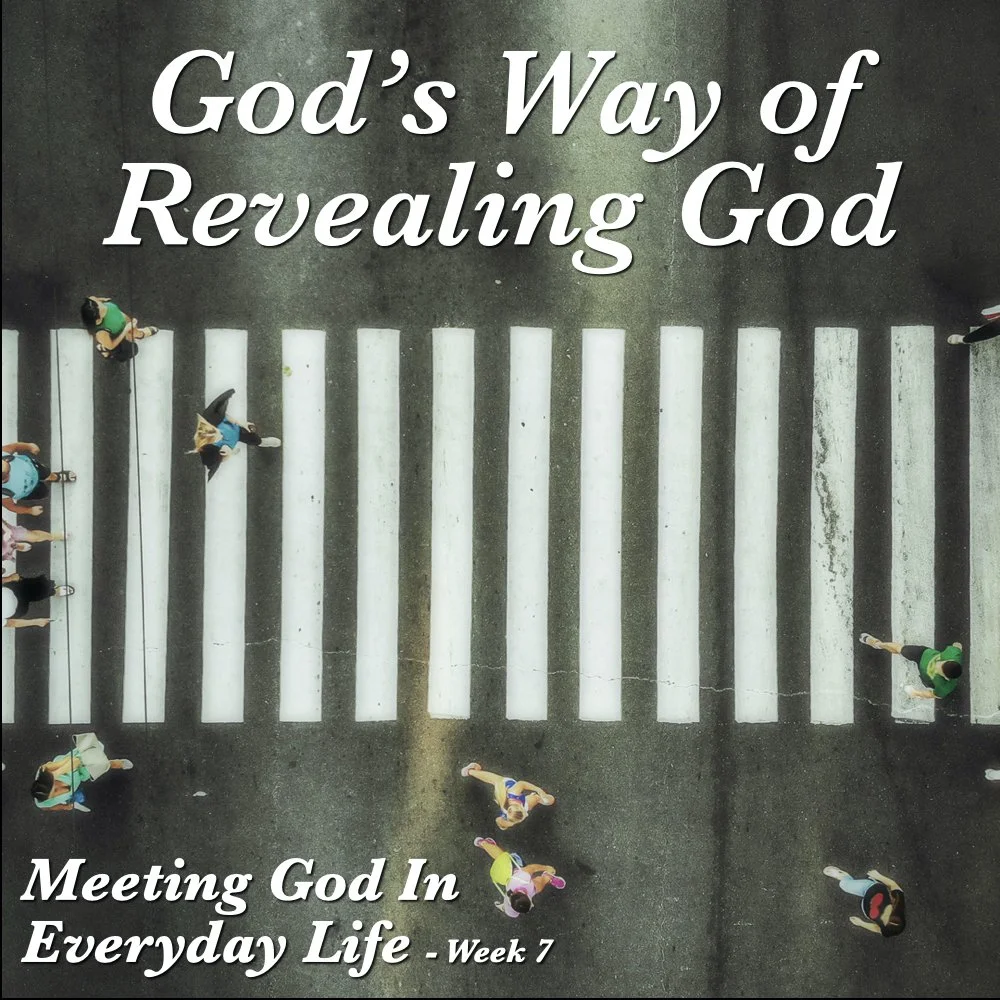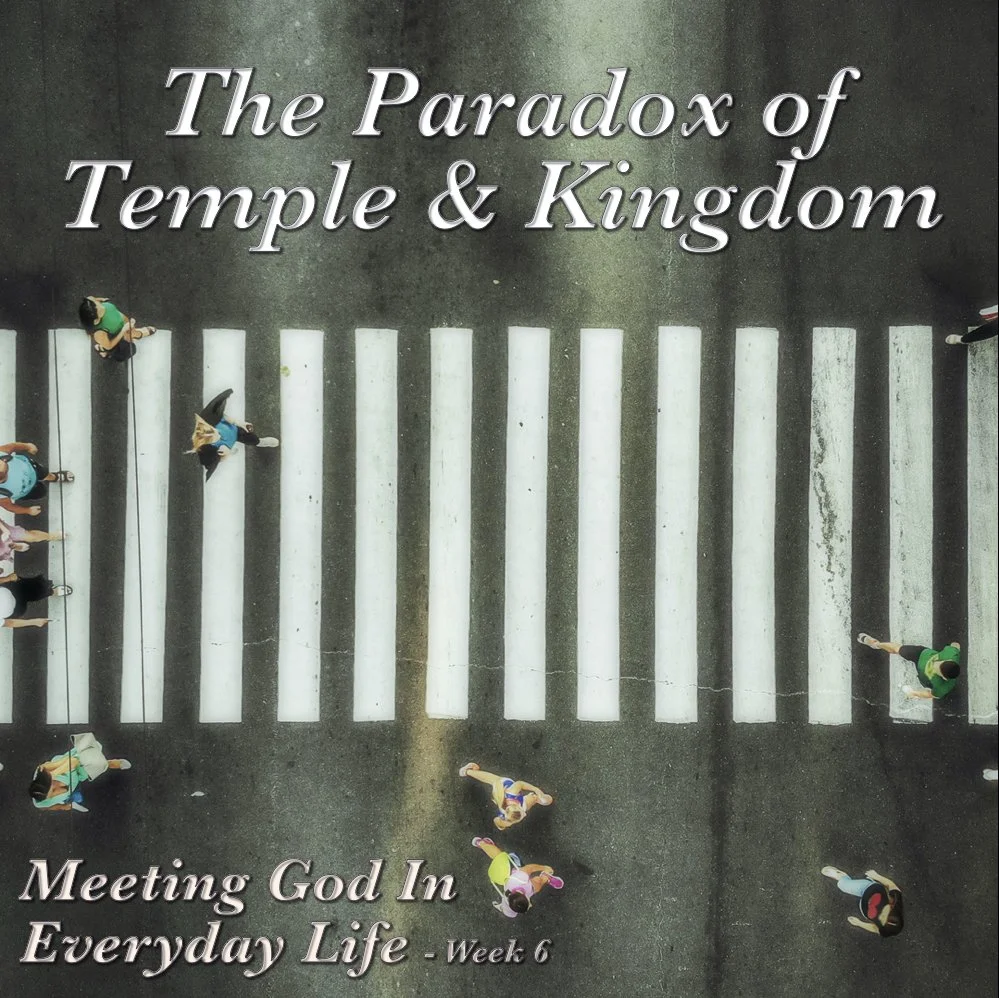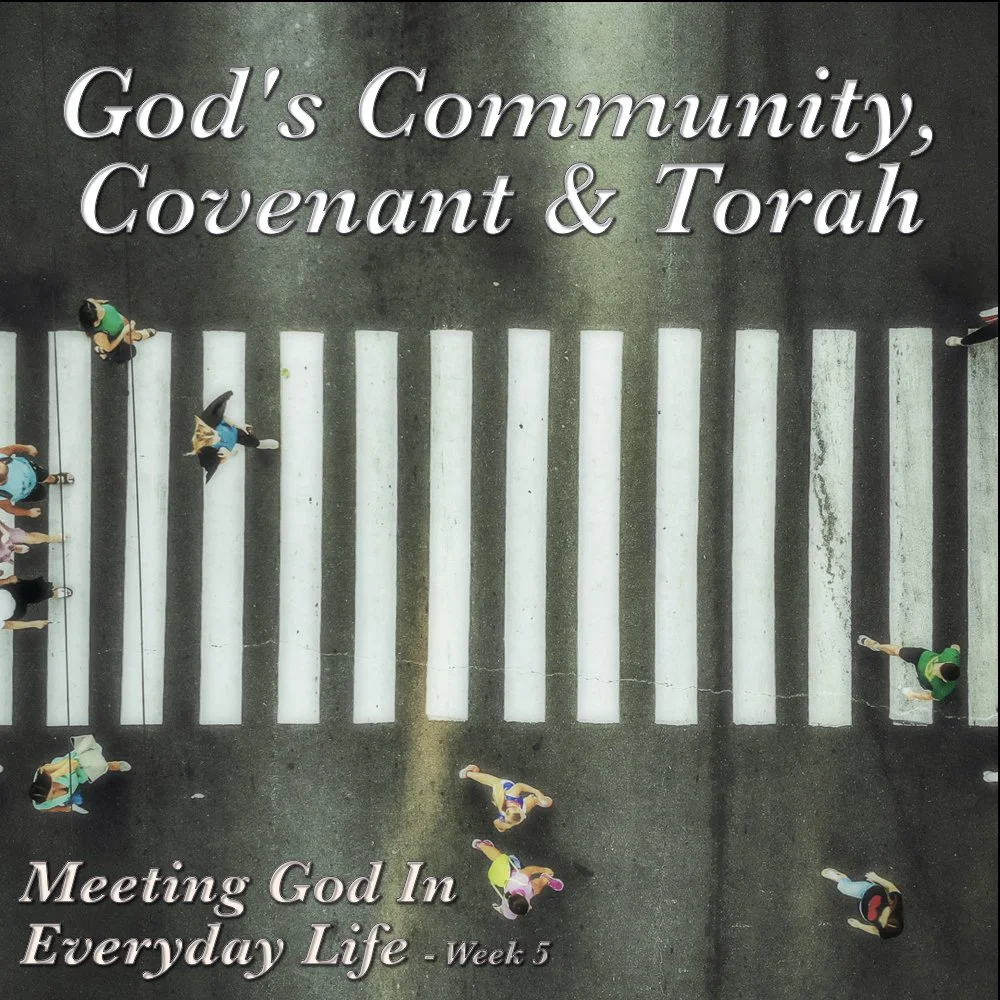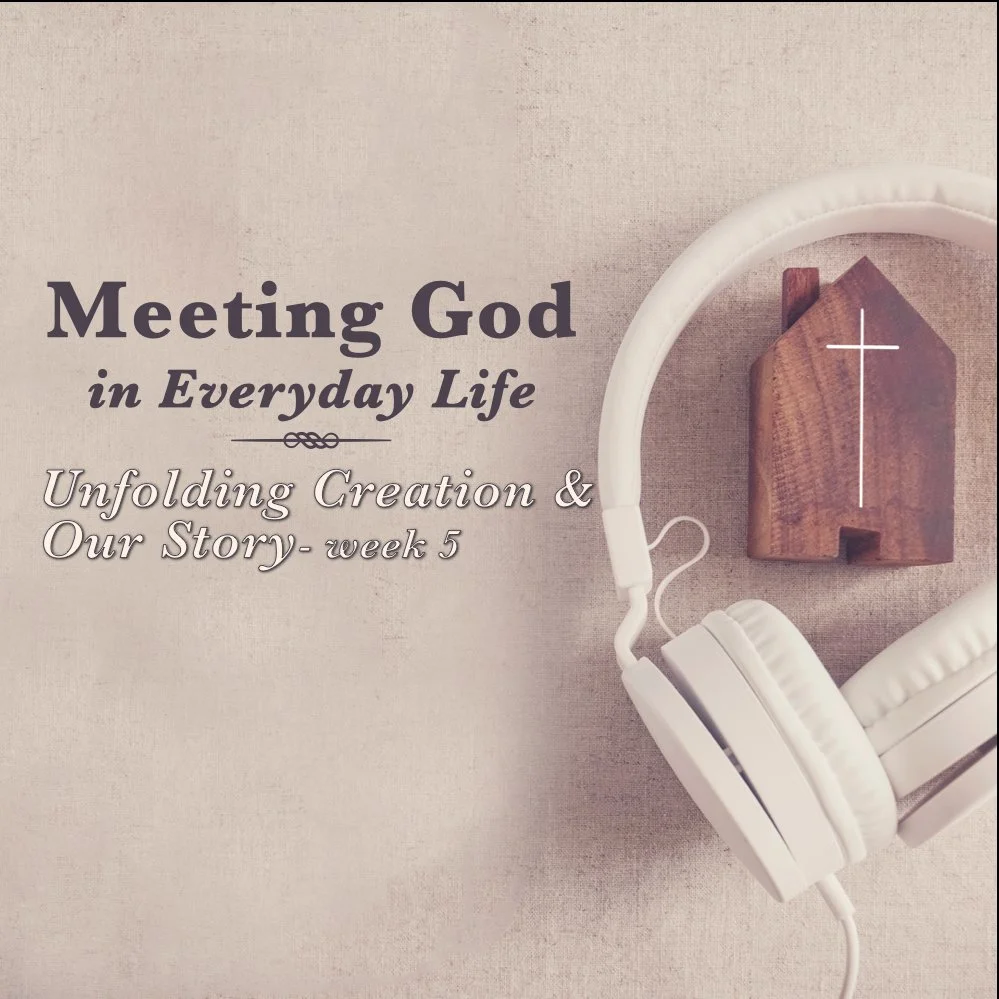Discover Manhattan Church of Christ Podcast
Manhattan Church of Christ Podcast

57 Episodes
Reverse
Carl Garrison leads the community in reflecting on Luke 6:36. Complimented with testimonies from Kylie Kelder and Raphael Oettl. This service is a powerful testimony to the struggle and call of forgiveness.
Matthew 22:1-14
A church, illuminated by the power of the Resurrection, does not cower in fear of being misunderstood by other religious leaders or institutions who stand from afar and criticize or chastise an openness to those whom God brings. Instead, A Church in Light of the Resurrection only fears that its actions explicitly or implicitly hinders those who God has called into His presence.
The journey of God with broken people from creation to the Babylonian exile and beyond. Despite human shortcomings, God speaks through limited individuals such as Abraham, Moses, David, and Isaiah to offer hope and renewal. The return from exile is slow and faces opposition, but the promise of God's kingdom remains. Isaiah introduces the mysterious figure of God's servant who ultimately carries the load of humanity's pain and wrongdoing to death. Jesus embodies this servant and brings new dimensions to the story through the foolish, weak Cross as God's power and wisdom in a broken world.
2 Samuel 7:1-29 explores the desires of God and humans as seen through the story of David and the building of the Temple. Despite David's desire to build a fixed Temple, God rejects this idea and instead creates a covenant with David's line of successors. The story highlights the importance of God's ever-moving intervention in the lives of his people and the dangers of centering worship on a fixed location. Ultimately, the passage emphasizes the importance of God's grace and love in the unfolding story of humanity's relationship with God, which is embodied in Jesus as the moving Tabernacle and his disciples as the spreading Temple of God's Holy Spirit.
The book of Deuteronomy highlights the history of the Israelites and their relationship with God. Through the accounts of Abraham, Moses, and the exodus from Egypt, it emphasizes the importance of seeking God and living by His commandments. The core teaching of Deuteronomy is the belief in one God, the creator, and instructor of all existence. God's covenant with His people is always present, providing guidance and protection in daily life. Moses delivers the Ten Words to focus on the heart's training to know and love God, emphasizing the importance of trust and relationships in society. Ultimately, Deuteronomy teaches that a life dedicated to God's love is a life-giving reality.
Testimonies in celebration of Black History and the impact of that history on faith and the church.
Scripture Reading: Genesis 12:1-9
God calls Abram to leave his settled life and journey to a land that can't be known. Before Abram does anything, God promises new life, new flourishing, and new blessing for all of humanity. The promise is a call to trust and build a life based on a deeper reality of God as the creator of life. The journey of trust begins as Abram departs, losing his life for the good news of the promise, and Yahweh becomes the center and giver of everything. The promise to give the earth to Abram's seed opens the whole earth to the journey of faith. All of Abram's offspring struggle to live on the land dominated by limited vision without the promise, but God's grace will fulfill his promise for the world.
Genesis 4:1-26
4:1 Now Adam knew is wife Eve, and she conceived and gave birth to Cain. And she said, “I have produced a man with Yahweh’s help!” 2 And again, she gave birth to his brother Abel. Abel was a herder of sheep, and Cain worked the ground.
3 After some time passed, Cain brought from the fruit of the ground a gift to Yahweh. 4 And Abel also brought some of the firstborn of his flock, and their fat portions. And Yahweh took notice of Abel and of his gift, 5 but he took no notice of Cain and his gift.
This kindled fierce anger in Cain, and his face fell into a scowl. 6 Then Yahweh said to Cain, “Why are you enflamed, and why is your face scowling? 7 Isn’t it true that if you do what’s good, you’ll be lifted up? But if you don’t do what’s good, sin is crouching at the door. Its desire is to have you, and you must gain mastery over it.”
8 Then Cain spoke to his brother Abel, and when they were in the field, Cain rose against Abel his brother and killed him.
9 Then Yahweh said to Cain, “Where’s your brother Abel?”
“I don’t know!” he replied, “Am I my brother’s protector?”
10 But God responded, “What have you done? The voice of your brother’s blood is crying out to me from the ground! 11 So now, you’re being cursed from the very ground that opened its mouth to receive your brother’s blood from your hand. 12 When you work the ground, it will no longer give its strength to you. You’ll be tossed about and wandering in the earth.”
13 Then Cain said to Yahweh, “My guilt is too great to bear! 14 Look! You’re expelling me today from the face of the ground, and I’ll also be hidden from your face. I’ll be tossed about and wandering in the earth, and anyone who meets me will kill me.”
15 But Yahweh said to him, “No! That’s why I say that anyone who kills Cain will suffer seven-fold vengeance.” Then Yahweh put a sign on Cain so that no one who met him would strike him down. 16 Then Cain went out from before the face of Yahweh and lived in the land of Wandering, east of Eden.
17 Cain knew his wife, and she conceived and gave birth to Enoch. Cain was building a city, and he named the city after his son Enoch. 18 To Enoch was born Irad, and Irad was father of Mehujael, and he was father of Methushael, and he was father of Lamech.
19 Now Lamech took for himself two wives, one named Adah and the other Zillah. 20 Adah gave birth to Jabal, who was father of those who live in tents and raise livestock. 21 His brother’s name was Jubal, who was father of all who play stringed instruments and pipes. 22 Zillah also gave birth to Tubal-Cain, who forged all kinds of tools out of bronze and iron. Tubal-Cain’s sister was Naamah.
23 Lamech said to his wives, “Adah and Zillah, listen to my voice; | wives of Lamech, hear my words. | For I’ve killed a man for wounding me, | a young man for striking me. | 24 So if Cain is avenged seven-fold, | then Lamech seventy-seven- fold.”
25 Adam again knew his wife, and she gave birth to a son and called his name Seth, saying, “God has granted me another offspring in place of Abel, since Cain killed him.” 26 Seth also had a son, and he named him Enosh. At that time people began to call on the name of Yahweh.
Reflecting on and understanding what it means to be a Christian, a Christ Follower, in the age of artificial intelligence. Genesis 2:4-8 & John 20:20-22.
How can we be countercultural as a church, in the midst of a technical age which mimics human care, knowledge, or concern, but is ultimately as hollow as the golden calf that sat at the foot of Mount Sinai. We must start asking ourselves these questions before blindly accepting the rapidly advancing technology that will shape the future of our world.
We must remain committed to a church community that centers itself around the physical table of Lord Jesus. Where we come together to serve each other, pray, worship God, and serve the poor and the forgotten. Don’t you see how important belonging and welcome is going to be? Social Media has shown us to be all “Alone Together” and in the next technical age this feeling of isolation is going to either magnify or be glossed over by software code.
God, Creator of Everything
The Bible is a narrative of God and us humans. It shows our grandeur and our brokenness, sin. It shows God’s work to free us from our self-destruction and bring us to share God’s life.
But all that is within a recognition of God as creator. Highly disputed today in a physicalist orthodoxy that asserts a world of chance, without mind, meaning, direction. Within two colorful narratives are affirmations of the why behind all the particulars of existing things.
Why is there something rather than nothing? All things we see are dependent, changing. What’s their source? God! Being itself, uncreated. God gives existence! All always depends on God.
Why are humans so different? With personal consciousness, directed, expansive, through which we know and do all else. The image of God: we’re responsible in a complex, abundant world.
Much more in Gn 1: God without conflict. Very good! Things are things. Discover order, rationality. God’s Word & Spirit pervade all. World participates in creation. God orders time & rest.
Everyday Life within the Reality of God
Gn 1 & 2 both see human life within the wonderfully complex world flowing from God’s being, intention, & character. No division of religious & secular. Every element of our everyday life is enfolded. They begin a vast parable of Gn 1-11 and tell the challenging, broken, and hopeful nature of human life. Challenges of loneliness, relationships, danger & death emerge in Gn 2.
Old stories finally written in the time of exile. Isaiah of the exile especially calls people to think of creation’s meaning. God’s creation ranges from stars to grieving hopeless people. When we look at every experience within that great reality, God’s power & hope pierce through even deep despair. Isaiah wants broken Israel to see themselves renewed within God’s strength.
Paul in Athens is called to speak to philosophers. He starts from their defensive pagan piety toward gods within the world. He challenges them to envision the Existence-giving God beyond all religion & piety. God is inescapable because he is in every breath we take. On our own, humans only feel after God as one outside us, though we live & exist within God. Seeing the reality of God elevates our vision of all humans including ourselves as his offspring.
The narratives of God as creator were never intended as statements of scientific analysis. The creation itself fulfills that role. God made it discoverable and usable. Even fusion energy.
But they know that all physical existence is within the more fundamental reality that God is. That deep being of God in love, relationship, power & purpose encounters us as God’s image in our own consciousness, love, mind, creativity, freedom, will, etc. A call to the life of God.
Meeting God in Everyday Life
Jesus vividly taught the reality of life and how we live in response to that reality. “Everyday life” is not in contrast with spiritual life. It’s life that knows that everything we experience from ravens & lilies to our most disturbing anxieties & fears and our highest aspirations are always within the active, creative presence of God. It’s distorted when our sense of the “everyday” gets cramped. God is pushed into a “religious” portion of life – special, limited. Jesus wants to elevate our sense of “everyday,” of ourselves, to know unified reality of God.
Jesus teaches how to live not by a set of ethical rules, but by helping us see the deep reality & beauty of everything in God (Truth) and by calling us to live in accord with that great Truth.
We want to compress our ‘reality’ to things we control, including our gods. We get smaller! He challenges us beyond our own vision of the possible – to see and live in God’s reality.
Mt 28:16-20 opens our eyes to God’s reality in Jesus and the Spirit. We share in God’s quest. Yes, it’s a challenge. We all become learners of Jesus. We’re given a plunge, participation in God’s identity, depth, community, unity – learning reality from the inside. We hold on to Jesus’ instructions in live into them. Father, Son, & Spirit are with us every step of the way.
God’s Invitation for Us to Share in God’s Life
In the history of Christianity, so much emphasis has been placed on guilt and the threat of punishment, that we miss the heart of Jesus’ invitation. Sin carries its own destructive power by distorting our lives and making us petty, cut off from reality of God. The very nature of God welcomes us into a new vision of ourselves, even in our limitations.
John 14:15-23. Jesus calls disciples to take his instructions as a challenge. God will give an Advocate/Paraclete/the Spirit of True Reality. He’s with you, in you. Jesus comes to you. “You share my life.” I’m in the Father. You’re in me. I’m in you. All woven in love. We love God as God, creator of all life, center of reality/truth. Jesus is the face of God. He defines God’s nature, instructions, love. Holding on to his message is the transforming adventure of free devotion. Father, Jesus, & Spirit all make their dwelling in disciples. True life.
Ephesians 3:14-19. Paul in prison has learned this great vision and lifts believers up to see it. Jesus gives an open door to the eternal, universal in God. This world is powerful, and it takes strength to enter. That strength is from God’s Spirit within us. We respond by trust in God’s faithfulness in Jesus. That faithfulness is God’s powerful, solid reality of Love. That love is the life-give soil that nourishes the roots of our life, the bedrock foundation that makes our very vulnerable lives unshakable.
As we’re opened to this reality of love, we begin to see its vast dimensions and its delight. It’s always beyond us but calling us always further into new experiences. This is the pearl of great price that Jesus tells of. We hang on to Jesus’ extravagant teaching that calls us into this world of love. We explore and learn, always as disciples. This is how God fills us up.
It’s not by mastering rules or good advice for doing things right in our closed-in world of our control. It’s realizing reality is so much bigger and living into that Truth. You are so much bigger! Our life is now alive with God’s life/Spirit, living every day in our everyday life.
Luke 12:22-34
22 Jesus said to his disciples, “I’m telling you, therefore, refuse to be anxious about life, what you should eat, or about the body, what you should wear. 23 For life itself is something more than food, and the body more than clothing.
24 Just think about the ravens. They’re neither sowing nor reaping; they own neither storehouse nor barn. And God is feeding them! Think how much more significant you are than these birds!
25 And which one of you by getting anxious gains the power to add even one foot to the length of your life? 26 If then you can’t even do something so small, why are you getting anxious about all the rest?
27 Think about the lilies, how they’re growing. They’re not laboring or spinning, but I’m telling you, not even Solomon in all his glory dressed himself so well as one of these.
28 Now if out in a field God is clothing the grass in this way, even though it’s here today and tomorrow gets thrown into a furnace, how much more will he care for you! You’re just beginning to learn faith!
29 So especially you – don’t keep focusing on what you’re going to eat and what you’ll drink, and don’t always be up in the air. 30 For the nations of the world are focusing on all these things, but for you, your own Father knows that you need these things. 31 Instead, focus on his kingdom, and these other things will be added for you.
32 Don’t be afraid, little flock, because your Father chose with delight to give you that kingdom! 33 Sell the things at your disposal and give with generous mercy. Make purses for yourselves that don’t get old, an inexhaustible treasure in God’s realms, where no thief sneaks in and no moth destroys. 34 For where your treasure is, there also your heart will be.
On Christmas day, we meditate on the coming of Jesus as the incarnation of
God.
The Surprise and Challenge of “God with Us”
Mt gives Jes’ genealogy but incredible birth with challenging choices. What you already know and what God makes possible. What kind of world do we live in? What’s possible? Luke: Mary’s faith. Matthew: Joseph. “With child of the Holy Spirit” – “just man,” “end betrothal.” In few words Mt. encapsulates the disruption and challenge of Jesus’ birth. Joseph could withdraw – fear. Like Mary he had to be open to having his own life marked in ways he couldn’t control. He believes, acts. He doesn’t get to name this child. The name is common – Joshua, Yehoshua, “Yahweh saves.” Jesus fills the meaning: He saves his people, deals with sin, the brokenness of humanity – all shown in the, deceit, violence, injustice. In Jesus, Joseph is shares in what God’s doing – his salvation!
Mt takes us deeper pointing to Isaiah 7 and the sign God gives through a maiden giving birth. Not a prediction but a parallel / resonance. In both, kingdoms clash. God acts. Birth is sign. Ahaz’ faith fails; he sells out. God’s challenge & grace continue. Can faith now be different?
One Change: Lifting Up the Meaning of “With”
Matthew emphasizes “God with Us.” He wants us to think about Jesus filling that meaning. God had been “with” his people. But now the “with” becomes direct, incarnation, God’s face.
It reaches back to God’s loving choice to create, to plant something of himself in us, his Image. God chooses to interact with us in time and history with its changes, shares with us. God chooses to deal with us in love rather than perfection, immutability. He acts in grace. So God come in flesh, human, us. So vulnerable. So beautifully God. Impossibles unite.
Human is not enough. Teaching & morality won’t save. God must intervene. As God, what Jesus does for us transforms who we are, to bring us to truly be children of God.
Jesus brings God’s transforming reality of holiness, self-giving love, & grace into the middle of human self-focus, self-deception. On Sinai God appeared in thunder, fire, trumpets, earthquake – as needed. Only in Jesus can the face of God be seen. The complex oneness of God who makes us for relationship, trust, and love, who wants our maturity, wholeness.
God with Us ... Us with God!
Jesus brings our ordinary life into God. The day by day existence he teaches in the Sermon on the Mount: anger, truth-telling, desires, honesty, anxiety, judgment of others, serving money & stuff, being peacemakers, etc. This narrow way of love is the excellent way!
God risks to be with us. Jesus is Lord, creator, judge. He serves but isn’t our servant. He loves, transforms, challenges, changes us, saves us. We want control, but he won’t be controlled. He wants to be with us, not at a distance. Go into the adventure. Into our true identity.
Jason Isbell brings a sermon centered around Joy. Joy as discipline, joy as resistance, and joy as an expression of being fully human.
Advent and the Coming of GodAdvent means ‘arrival,’ coming. It’s a season in the Christian calendar, traditionally focused on Jesus coming into the world, the beginning of the great event, the turning point of history. No one knows Jesus’ birthday. A date was chosen. Traditions of all kinds grew up around it.The Gospels tell of his ‘Advent’ because of its core: ‘incarnation.’ Human nature is united to God’s reality in Jesus. Jesus is both us and God. The event continues through Jesus’ growth, ministry, teaching, crucifixion, resurrection and beyond! In Jesus, the God beyond all imagination seeks us human creatures and creates a way for us to be united to God’s own life – the ongoing climax to all of scripture. Advent continues till God renews creation.God’s Purpose to Bless HumanityThe idea of incarnation seems radically new, unexpected. But the Gospels, and Jesus himself, show its deep roots in the whole, complex story of scripture. God’s relation with humanity unfolds, interacting with human brokenness, through law, kings, prophets, poets, temple, priests, national destruction, exile, renewal, etc. Jesus himself weaves together scripture with new images to help us see where God had been going through that circuitous story.Humans are created in God’s image; God comes in that image. Human exile. Abraham: God’s promise of Grace for all. Paths of covenant in Law, Wisdom, Poetry, Worship. Promise to David of an Anointed King. National failure, exile. God is coming! God is King! His Arm, his presence, a Suffering Servant. Against little human gods, God comes as “Son of the human.”People thought the gulf between God & human could not be crossed. Death ended human hope. Human effort always ends in failure. But in Jesus, God does the impossible. God the creator become a creature sharing human suffering and death to create new life.Jesus and the Father – Embodying God’s Love.The unity of Jesus’ story from birth to death is crucial. Some popular forms of talking about Jesus’ crucifixion & atonement seem almost to set Jesus over against God: God’s righteous wrath requires that all people as sinners be punished. Jesus intervenes to stop God’s wrath by taking it on himself. No! Jesus on the cross is the very embodiment of God’s Love! In Jesus, God comes seeking us. Jesus dies for us by taking into God’s self all our sin, brokenness, & death, so that we can realize God’s love and live as God’s beloved children. Jesus’ Advent is God’s Advent and Our Advent, new hope, truly the turning of the Ages!


